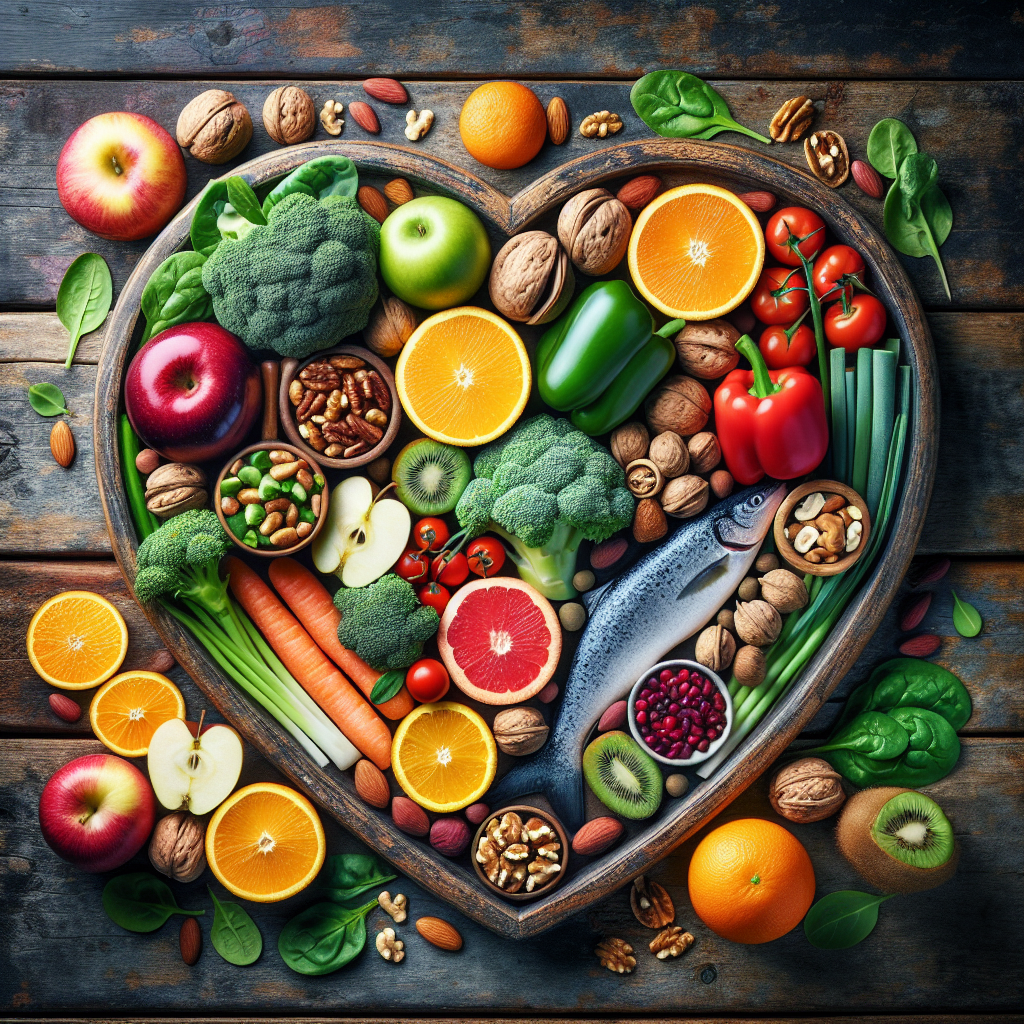Eating a diet rich in organic foods can significantly reduce your risk of stroke by improving cardiovascular health, lowering blood pressure, and reducing inflammation. Certain nutrient-dense foods, particularly those high in potassium and antioxidants, play a crucial role in protecting your brain and heart. Here’s a detailed look at the best organic foods that can help prevent stroke and support overall well-being.
Why Organic Foods Help Reduce Stroke Risk
Stroke occurs when blood flow to the brain is interrupted, either due to a clot (ischemic stroke) or a ruptured blood vessel (hemorrhagic stroke). A diet high in processed foods, unhealthy fats, and excess sodium increases the risk of hypertension, atherosclerosis, and inflammation—all major contributors to stroke. Organic foods, on the other hand, are free from synthetic pesticides and often richer in essential nutrients that promote vascular health.
Key Nutrients That Combat Stroke
- Potassium: Helps regulate blood pressure by counteracting the effects of sodium.
- Antioxidants: Protect blood vessels from oxidative damage and inflammation.
- Fiber: Lowers cholesterol and improves circulation.
- Magnesium: Supports healthy blood pressure and nerve function.
- Omega-3 Fatty Acids: Reduce inflammation and prevent blood clots.
Top Organic Foods to Lower Stroke Risk
1. Leafy Green Vegetables
Dark leafy greens like spinach, kale, and Swiss chard are packed with potassium, magnesium, and nitrates—nutrients that improve blood vessel function and lower blood pressure. Studies show that consuming just one extra serving of leafy greens daily can reduce stroke risk by up to 11%.
2. Berries
Blueberries, strawberries, and raspberries are rich in flavonoids, which have been shown to improve circulation and reduce inflammation. Their high antioxidant content also helps protect brain cells from damage.
3. Bananas
A single banana contains about 400mg of potassium, making it one of the best foods for maintaining healthy blood pressure levels. Eating bananas regularly can help prevent arterial stiffness and lower the risk of ischemic stroke.
4. Nuts and Seeds
Almonds, walnuts, and flaxseeds are excellent sources of heart-healthy fats, fiber, and magnesium. Just a handful of nuts per day can lower LDL cholesterol and improve endothelial function.
5. Whole Grains
Organic oats, quinoa, and brown rice provide slow-digesting fiber, which helps stabilize blood sugar and reduce arterial plaque buildup. Whole grains are also rich in B vitamins that support nerve health.
6. Citrus Fruits
Oranges, grapefruits, and lemons contain hesperidin, a flavonoid that enhances blood flow and reduces inflammation. Their high vitamin C content also strengthens blood vessel walls.
7. Fatty Fish
Wild-caught salmon, mackerel, and sardines are rich in omega-3 fatty acids, which reduce triglycerides, prevent clot formation, and decrease inflammation in blood vessels.
How to Incorporate These Foods Into Your Diet
Making small dietary changes can significantly impact your stroke risk. Here are some simple ways to include these foods in your meals:
- Start your day with a smoothie made with spinach, banana, and flaxseeds.
- Snack on a handful of almonds and berries instead of processed snacks.
- Replace refined grains with quinoa or brown rice in your meals.
- Include fatty fish at least twice a week for a good dose of omega-3s.
Other Lifestyle Tips for Stroke Prevention
While diet plays a crucial role, other lifestyle factors also contribute to stroke prevention:
- Exercise regularly: Aim for at least 30 minutes of moderate activity daily.
- Manage stress: Chronic stress raises blood pressure—practice meditation or deep breathing.
- Limit alcohol and avoid smoking: Both increase stroke risk significantly.
- Stay hydrated: Dehydration can thicken blood, increasing clot risk.
By incorporating these organic foods and healthy habits into your routine, you can take proactive steps toward preventing stroke and improving long-term cardiovascular health.
